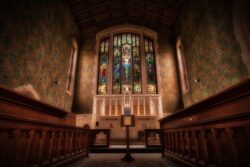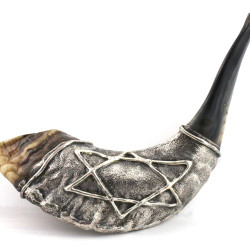Many diversity trainers tell me that they steer clear of religion. Not me. Faith discussions are always welcome in my workshops. I love talking about religion. Maybe that’s because of how I grew up.
 Some people are reared in a strong religious tradition. Others with none. I grew up in a home with two faith traditions. To this day that experience affects the way I view the world around me.
Some people are reared in a strong religious tradition. Others with none. I grew up in a home with two faith traditions. To this day that experience affects the way I view the world around me.

Consider the opening lines of my memoir, Rose Hill: An Intermarriage before Its Time. “Dad was a Mexican Catholic. Mom was a Kansas City-born Jew with Eastern European immigrant parents. They fell in love in Berkeley, California, and married in Kansas City, Missouri. That alone would not have been a big deal. But it happened in 1933, when such marriages were rare. And my parents spent most of their lives in Kansas City, a place both racially segregated and religiously divided. Mom and Dad chose to be way ahead of their time; I didn’t. But because of them, I had to be. My mixed background meant that, however unwillingly, I had to learn to live as an outsider.”
Religion permeated 1940’s Kansas City. Everybody in the neighborhood knew everyone else’s religion. Same with elementary school. But at that point it didn’t seem to affect how we got along. Live and let live.
High school was something else. Fraternities and sororities dominated high school social life. Belonging to one marked you as part of the in-crowd. Not belonging? You get the picture. Moreover, all fraternities were either Protestant or Jewish (Catholics went to parochial schools.) Because of my mixed religious background — added to that being the only Mexican American in my school — I didn’t fit into either kind of club.
Then came dating. In those days boys always went to the front door to pick up their dates. This meant predictable speech rituals with protective parents, particularly on first dates. One inevitable parental question, sometimes the question: “Where do you go to church (or synagogue)?” It was assumed that everybody did. Methodists dating Presbyterians was considered inter-religious. Imagine how I fit into that system.
When picking up a Jewish girl, I could answer “Temple B’nai Jehudah,” the city’s Reform temple to which my mom took me. I would avoid mentioning my dad. When picking up a Catholic girl, I would talk about my dad (who surreptitiously but inconsistently took me to mass). I avoided mentioning my mother or that my dad was Mexican. When it was a Protestant girl, I tried to get out of the house before I got nailed.
Sometimes my folks would ask whom I was going out with. No matter what I answered, either dad or mom – sometimes both — would be disappointed. Sometimes they would show it. Other times not, but I could tell they felt I had let them down.
My high school experience, turning half truths into an art form, also paid off in college. I joined a Christian fraternity, but not until my junior year did I summon up the courage to tell my fraternity brothers about my mother. To my surprise, they didn’t seem to care. I was just Carlos. I didn’t suddenly grow comfortable talking about religion, but trusting my fraternity brothers had broken the ice.
That contested growing-up experience ultimately caused me to take a deep interest in religion, culturally and socially as well as theologically. I learned to converse openly and honestly about religion. I dated girls of myriad religious backgrounds. I comfortably shared my mixed religious past and eagerly discussed others’ faith traditions. And I welcome – sometimes encourage — discussions of faith in my diversity workshops.
When I relate my high school religious experiences to younger generations, they shake their heads. It’s alien to their time and place. Sometimes they criticize my folks’ generation, including my parents, for laying a guilt trip on me. I defend them as products of their times, but I don’t celebrate the myth of the supposed good old days.
In retrospect I wouldn’t change much of anything. Growing up wasn’t great fun. But working my way through my personal religious maze taught me useful lessons. Despite my youthful travails, I learned to respect and talk about religion, although I didn’t end up with a personal faith. I became comfortable residing on the social margins. Years later, when I became chair of my campus’ Chicano Studies program, my brother became president of his synagogue.

Nice essay! Always fun and informative to read Carlos’ personal insights into a life well lived.